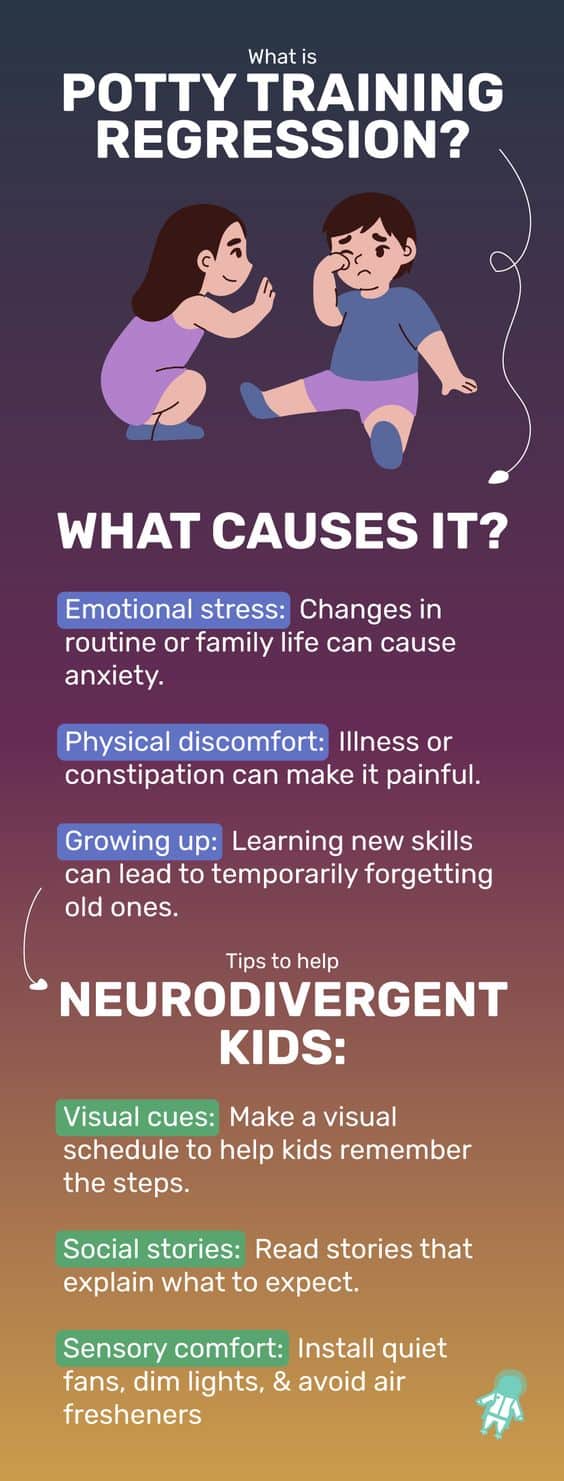Anticipated regression refers to the loss of previously acquired skills in children with neurodevelopmental disorders like autism or epilepsy. The treatment for this regression depends on the underlying cause and symptom severity. Here are some common interventions:
- Behavioral therapy: A trained therapist can help develop strategies to address specific symptoms like language or social skills regression.
- Medication: In some cases, medication may be prescribed to manage symptoms such as seizures, anxiety, or sleep disturbances.
- Educational support: Additional educational support like an individualized education plan (IEP) or specialized services can benefit children with anticipated regression.
- Family support: Counseling or support groups can help families cope with the stress and develop strategies to support their child.
For example, if a child with autism experiences regression in language skills, their therapist might recommend behavioral therapy, speech therapy, or a communication device. Family counseling can also assist in understanding and managing behavior changes.
The long-term prognosis depends on the underlying cause and symptom severity. While some children may fully recover lost skills, others may experience permanent effects. Early identification and appropriate interventions can help children make progress towards developmental goals and achieve a good quality of life. In addition to these interventions, Goally, a tablet with fun and interactive apps, can be a helpful tool for children with neurodevelopmental disorders. It can assist in building life and language skills while providing an engaging experience.
Editor’s note: This information is not meant to diagnose or treat and should not take the place of personal consultation, as needed, with a qualified healthcare provider and/or BCBA.














